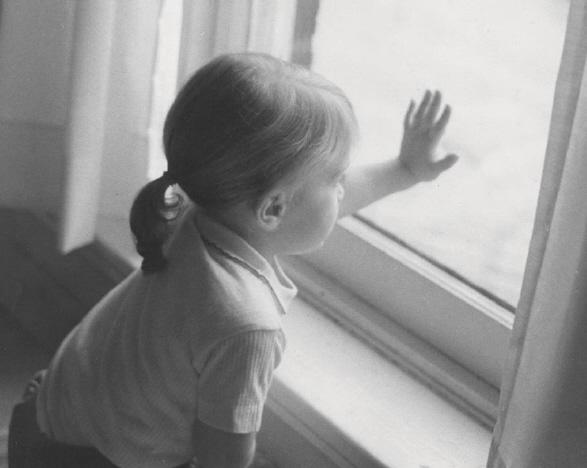skip to main |
skip to sidebar
 The Mercury-bound MESSENGER spacecraft captured several stunning images of Earth during a gravity assist swingby of its home planet on Aug. 2, 2005. Several hundred images, taken with the wide-angle camera in MESSENGER’s Mercury Dual Imaging System (MDIS), were sequenced into a movie documenting the view from MESSENGER as it departed Earth.
The Mercury-bound MESSENGER spacecraft captured several stunning images of Earth during a gravity assist swingby of its home planet on Aug. 2, 2005. Several hundred images, taken with the wide-angle camera in MESSENGER’s Mercury Dual Imaging System (MDIS), were sequenced into a movie documenting the view from MESSENGER as it departed Earth.
For some additional fun, check out Fourmilab's site, which allows you to look at views of Earth from dozens of different satellites.
Lately I've been mulling over the idea of national goals. I haven't really considered it before actually. What happens when a nation or society has no unifying goals? If you look at the US' recent history, you can see that we seemed to thrive when we had a sense of common purpose. In the 30's we were trying to get through the Depression. In the 40's, it was WWII. In the 50's and 60's it was defeating the commies and the space program. Look at the 70's though. It was a period of disillusionment and drift. In the 80's we resurected the commies again, and we were trying to pull out of a recession. Since 1990 though...it's pretty much a void as far as any sort of unifying issue or purpose for the US. What seemed to take its place was a fractious divide between the left and the right. "The War On Terror" seemed like it might fill that void for a time, but the major players overplayed their hand and ended up just further exacerbating the ideological division within the US. I think the public is generally pretty cynical about the government's efforts, both overseas and domestically. The issue has been overly politicized and the public feels manipulated (with good reason, in my opinion). I'm beginning to feel that if a leader emerges with an agenda of goals for the US to accomplish (I'm talking real goals here, with deadlines and accountability) he or she could be very successful. I think that a people yearn for good leadership and want to know what they can do to help. Americans see themselves as "can do" people. If someone clever enough to recognize this comes along in '08, they could run away with the presidential race.So what should America set as national goals? What do we want to fix, or improve about our society? I think the time is NOW to begin this discussion.
A dirty little secret has been thrust into the spotlight recently. There are a lot of people in the US that are living below the poverty line. Tens of millions of Americans hover in poverty in one of the richest nations in the world. Here's a quote from a Newsweek article:
But after a decade of improvement in the 1990s, poverty in America is actually getting worse. A rising tide of economic growth is no longer lifting all boats. For the first time in half a century, the third year of a recovery (2004) also saw an increase in poverty. In a nation of nearly 300 million people, the number living below the poverty line ($14,680 for a family of three) recently hit 37 million, up more than a million in a year.
What does this cost society? We all know that entrenched poverty is responsible for a litany of social ills and wasted human potential. As a society, do we feel obligated to create structures that create avenues out of entrenched poverty? As far as class goes, things are pretty fluid for people who are working class, on up. But for large numbers of Americans, living below the poverty line becomes a trap that ensnares people for generations.
Government has sought to address the problem of poverty at various points in the 20th century, to varying degrees of success. In recent decades, these efforts have been derided as "social engineering" and have been roundly criticized as failures. However, some of these efforts have brought positive results:
Following the Gatreaux model in Chicago, the Clinton administration launched a "scatter-site" housing program in four cities that found homes for the poor in mixed-income neighborhoods. While the move doesn't much benefit adults, their children—confronted with higher expectations and a less harmful peer group—do much better. "It really helped in Atlanta," says Rep. John Lewis, a hero of the civil-rights movement.
Social welfare programs, both successful and otherwise, have been reduced or eliminated in recent years as the Bush administration continues to persue the conservative "personal responsibility" agenda. So government's role in attempting to diminish poverty has been reduced considerably over the years.
For me, the question is, what fills the void? Society is pretty secular and transient today. The pressures of religious or community obligation to care for or mentor people in the community who are less fortunate have largely evaporated. So what's left?
I think that we need to take another look at the boogyman of "social engineering". What's so bad about trying to engineer society? I think the American public needs to take a look at where it is, and really set some goals. Issues of poverty, education, class, and crime need to be discussed. Openly. What are the social institutions that can be a conduit for society's efforts to deal with its' problems and "engineer" a future where more people can find their way out of poverty and be productive members of society? Public education springs to mind immediately. Another avenue is community embracing the values of social responsibility.
We Americans love our independance and individuality. Those values are important but they need to be balanced with obligation to neighbor, friend, community, and society as a whole.
 As I continue to digest the the images and stories that have emerged from the destruction in the the gulf coast region, I find myself pulled toward the subjects of community, society, and duty. What does it mean to be an American? To be part of a society or a community? What price do we pay when we abandon the ideals of duty to one's fellow man? Do we even believe in such a thing anymore? I will be watching to see what impact the recent destruction and massive displacement of people will have on our culture. I think it could be pretty significant. I feel oddly optimistic, actually. Katrina has shattered our ideals of who we are.
As I continue to digest the the images and stories that have emerged from the destruction in the the gulf coast region, I find myself pulled toward the subjects of community, society, and duty. What does it mean to be an American? To be part of a society or a community? What price do we pay when we abandon the ideals of duty to one's fellow man? Do we even believe in such a thing anymore? I will be watching to see what impact the recent destruction and massive displacement of people will have on our culture. I think it could be pretty significant. I feel oddly optimistic, actually. Katrina has shattered our ideals of who we are.
Out of that destruction, something new can grow.
Crisis = danger + opportunity
 The Mercury-bound MESSENGER spacecraft captured several stunning images of Earth during a gravity assist swingby of its home planet on Aug. 2, 2005. Several hundred images, taken with the wide-angle camera in MESSENGER’s Mercury Dual Imaging System (MDIS), were sequenced into a movie documenting the view from MESSENGER as it departed Earth.
The Mercury-bound MESSENGER spacecraft captured several stunning images of Earth during a gravity assist swingby of its home planet on Aug. 2, 2005. Several hundred images, taken with the wide-angle camera in MESSENGER’s Mercury Dual Imaging System (MDIS), were sequenced into a movie documenting the view from MESSENGER as it departed Earth.

